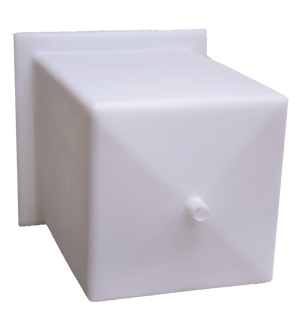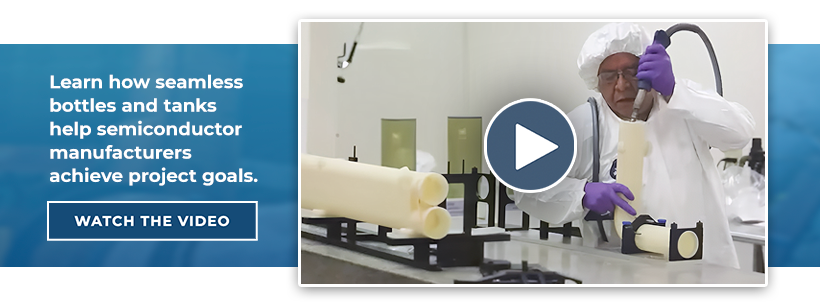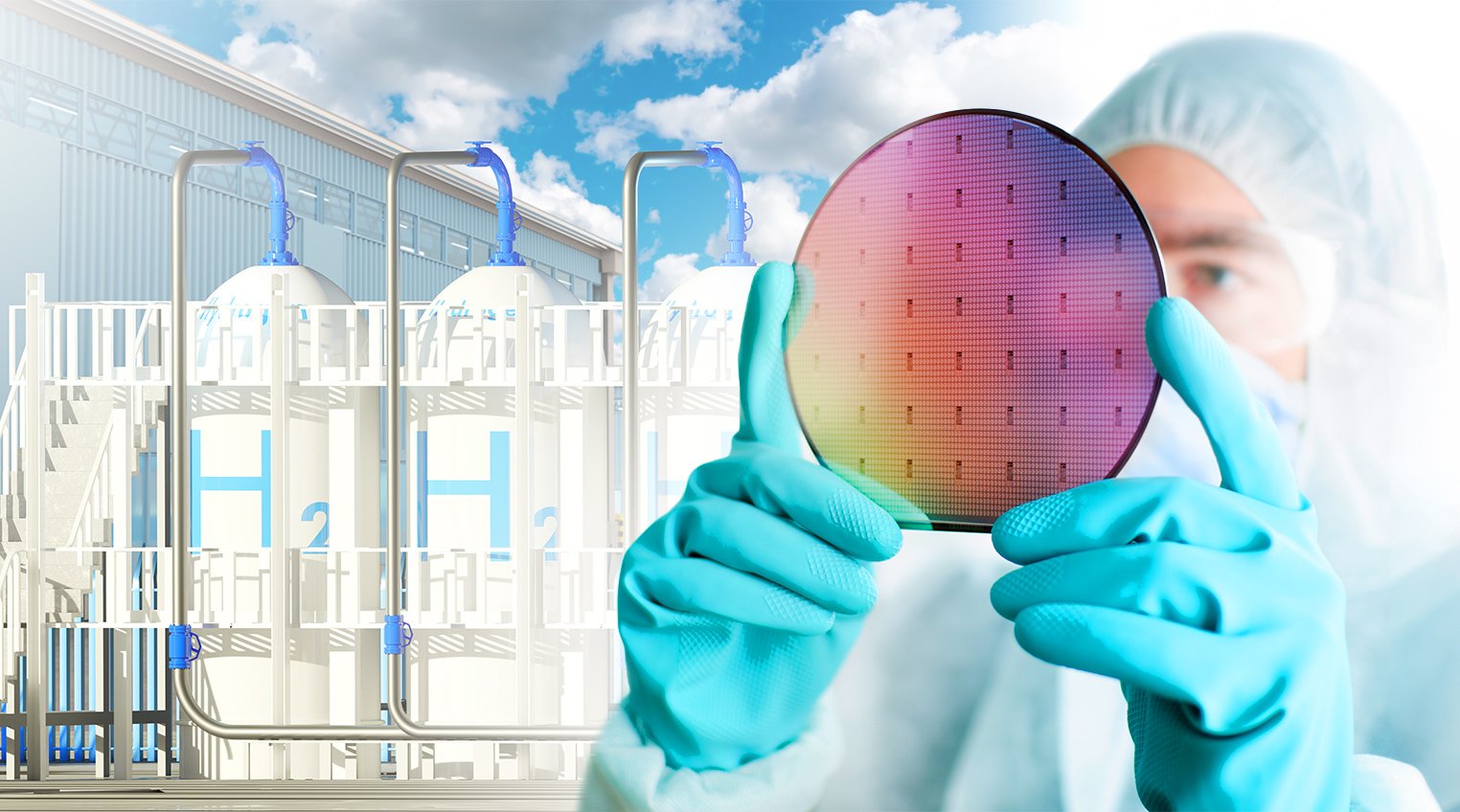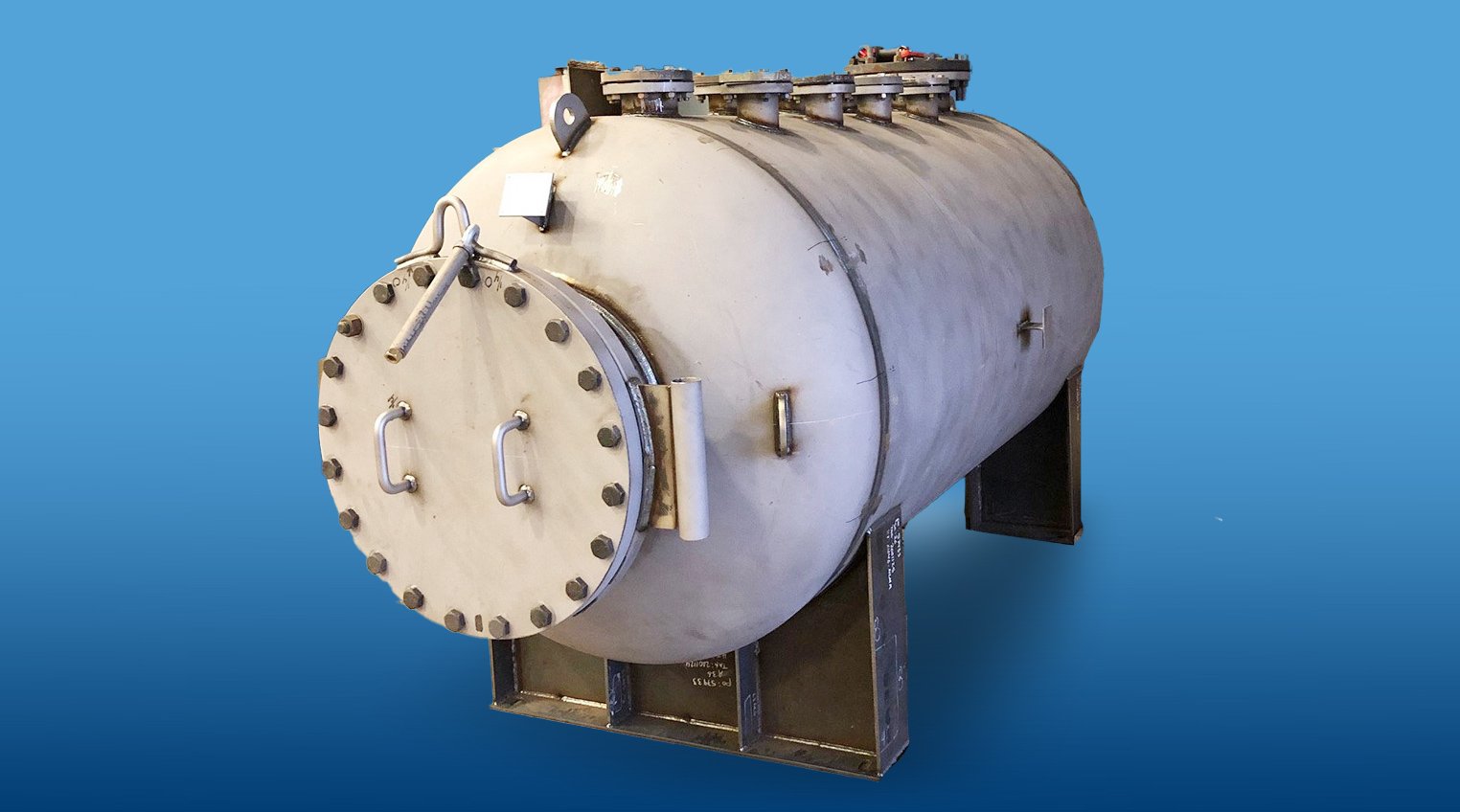Seamless Bottles and Tanks: The Best Solution for Ultra-High-Purity Fluids
The semiconductor industry relies on ultrapure water (UPW) and other liquids that need thin-walled, hollow parts and containers (tanks or bottles) suitable for high-purity fluid handling. It needs a company that can supply a well-designed, leak-proof, high-purity container that enables complete liquid capture or recovery. RMB Products leverages the advantages offered by rotational molding to fabricate seamless bottles and tanks to help semiconductor manufacturers achieve project goals quickly and efficiently.
Thirsty industries serving modern society
Semiconductor manufacturers use UPW and other fluids to create the products ubiquitous in modern society. For example, semiconductor chips — found in every cell phone, computer, or smart device — are manufactured using a process that relies on UPW. The chips themselves reside on a silicon wafer that must be thoroughly cleaned in order to act as the foundation for the chips.
UPW is water free from any impurities. Various processes purify the water, such as ultrafiltration, reverse osmosis, or degasification. Water plays a critical role in semiconductor manufacturing as it’s used to rinse and clean silicon wafers during production.
High-performance polymers supply the best containment material for UPW and other high-purity fluids, because other materials would contaminate the contents. In the semiconductor industry, metal and anionic contaminants can compromise quality and lead to component failure.
 Resins, such as PVDF, are called “clean polymers,” which do not require the use of stabilizers, plasticizers, lubricants, or flame-retardant additives. The best types of high-performance polymers for high-purity fluid containment should be hydrophobic or non-hygroscopic and corrosion resistant in order to meet this industry’s strict requirements and challenging specifications.
Resins, such as PVDF, are called “clean polymers,” which do not require the use of stabilizers, plasticizers, lubricants, or flame-retardant additives. The best types of high-performance polymers for high-purity fluid containment should be hydrophobic or non-hygroscopic and corrosion resistant in order to meet this industry’s strict requirements and challenging specifications.
Among the methods used to form these polymers into bottles or tanks for ultra-high-purity fluid containment applications, one stands out among the rest — rotational molding.
The process of rotational molding
The process of rotational molding is similar to that used for rotolining larger vessels. RMB selects the appropriate polymer resin, melts the resin, and rotates a mold biaxially to create the container. Rotational molding can create recessed fittings or different geometries with curvature or contours to accommodate customer needs for cabling, mounting devices, and other features on the containers. Customers often add level sensors or other peripherals to these tanks.
While custom resins are available — and RMB can do custom or specific resin grinds — RMB primarily uses PVDF, PFA, HDPE, or other resins commonly specified within these industry applications. RMB can provide high-purity fittings for the tanks that are compatible with the tank itself.
Benefits of rotomolding bottles for high-purity fluid containment
Rotomolding offers the following benefits:
- Retain every drop of liquid. While every drop of fluid used in high-purity applications is precious, some are more precious than others. Companies can ensure complete fluid recovery from containers fabricated with rotational molding. The process of biaxial rotation to line a mold produces a parting line on the bottle’s exterior, while the interior is seamless.
Alternative manufacturing methods, such as blow molding or injection molding, create seams. A seamless interior surface eliminates weld or parting lines that can disrupt the flow or capture of fluids from the container. Use rotational molding to recoup 100% of the fluids from inside the vessel.
- Avoid leaks or container failure. The main point of failure for welded containers is the welded seam. Seams are man-made and prone to quality problems. A container without seams — the result of rotational molding — helps eliminate the chance of leakage. In addition, seamless construction means that rotationally molded tanks and bottles are mechanically stronger and better equipped to withstand drops or physical abuse.
- Expedite your timeline for project completion. Rotational molding shortens the timeframe to set up a mold by hundreds of hours, if not weeks, compared to alternative molding technologies. A repurposed or modified mold timeline is even shorter.
Rotational molding is a very low-pressure process, and the moldmaking process is simple and less time intensive than other technologies. Other methods, such as injection or blow molding, involve much higher pressures and could require thousands of hours of machining to create the molds. These also might require cooling jackets or other accessories, which increases their cost.
Find sizing suited to the specialty needs of high-purity fluid containment. Rotational molding of bottles or tanks starts at the 120-milliliter mark and can produce containers that hold up to 200 liters. Within the high-purity semiconductor industry, containers for high-purity fluids often have size restrictions.
Larger vessels or containers are more subject to potential contamination than smaller vessels. Thus, keeping containers within a specific size range helps manufacturers better adhere to stringent requirements for purity and cleanliness. The best practice is to size the tank so that it’s not overly large compared to the volume of the fluids. Try to anticipate an aspect ratio of 1:1 to 1:1.5 for a cylindrical tank.
Shape matters as well. Cylindrical or spherical tank shapes are easier to mold than to fabricate. The radius of a cylinder or sphere is inherently stronger than a container with a squared-off, 90-degree angle at the bottom. A rotationally molded sphere or cylinder helps increase the container’s strength.
Experience makes a difference
RMB has decades of experience rotational molding with the types of specialty resins required by semiconductor manufacturers. There are few companies that can match RMB’s foundation, experience, and capability when it comes to managing polymers for rotational molding. That’s why semiconductor manufacturers continue to rely on RMB for rotationally molded tanks and bottles for high-purity fluids.
For example, PFA requires numerous variables to align in order to successfully use rotational molding for tanks and vessels. RMB operators have been molding PFA containers daily for decades. Their experience with the surface treatments of the molds, processing parameters, and mold maintenance ensures a uniform product with every process.
Clean and clear fourier transform infrared spectroscopy (FTIR) analysis
Customers that specify HDPE can count on a clean FTIR analysis due to a proprietary process developed by RMB. This process eliminates mold-release agents, without any detriment to demolding the bottle or tank. Eliminating mold treatments and release agents means there are no leachables outside of elements inherent to the polymer. A clean FTIR analysis means there are no trace chemicals to contaminate the final product that results from RMB’s molding process for HDPE.
In-house capabilities supply greater quality
When a manufacturer is developing a new semiconductor cleaning or etching platform, the process requires tanks. RMB’s engineering staff can work with the manufacturer from the start of the project to optimize the high-purity containers required for the application. Starting with the basic geometry in the cabinets, work with RMB to develop the best mold size and design configuration for fittings and lids.
RMB manages the entire rotational molding process in-house, from design to shipping. Its in-house capabilities are fully integrated to quickly support new mold designs and new projects. However, the best time to initiate a discussion with an RMB engineer is at the start of the project. That way you can avoid delays, lost productivity and work, and costly redesigns.
As an ISO 9001-certified company that regularly supplies equipment to meet military, government, and aerospace requirements, RMB’s quality is top-notch. Count on that quality and service for your next rotational molding project for high-purity fluid containment. Contact RMB today.




